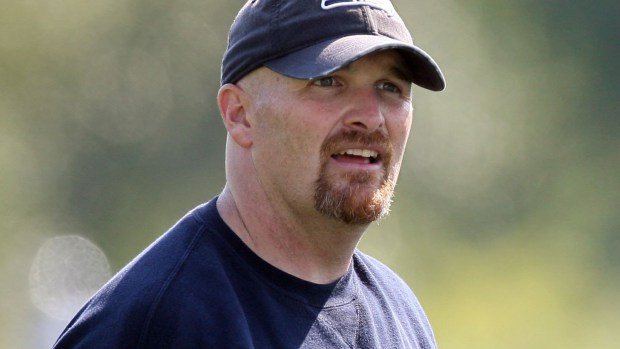olyfan63
Well-known member
- Joined
- Apr 17, 2012
- Messages
- 6,169
- Reaction score
- 2,276
Thinking over the 'Hawks last offensive play of SB49, and while I have to admire the key individual plays made by 3 Patriots on that play, I'm still left wondering how the Patriot DBs knew so clearly and convincingly *exactly* what was coming, with enough confidence to "bet the farm" on it, and have that guess turn out to be right.
Can someone share info that puts the "stolen signals" theory to rest? The hard part is that the Patriots and Belichick have done that specific thing in the past, i.e., there is a precedent.
Browner knew exactly what was coming, and prevented Kearse from getting off the line and using him in the pick action. (That was the dumbest part of the playcall, relying on Kearse to out-physical Browner; a bad matchup) And then Butler also sold out 100%, anticipated the route, and jumped it and got the pick. I keep getting stuck on the sheer odds of the Patriots guessing right and then executing so perfectly. Of course, One could say the same thing about our NFCCG win against the Packers, and everything that went our way at the right time on that.
How did Bevell/Carroll communicate the play call to Wilson on that play, and are there factors in that method which clearly rule out any factor other than the Patriots simply "guessing right" based on thorough scouting and player recognition?
I'm hesitant to give any weight to after-the-fact stuff like Butler's interview statements about how they practiced that and Belichick made him repeat the play until they got it right. That type of interview stuff could be "coached" after the fact.
My hope is that there's some clear factor that puts this whole idea to rest.
P.S. The 3 Patriots that made key plays were #1 Browner, #2 Butler, and #3 Hightower, in order of importance. Browner defeating Kearse's attempted pick was the #1 key. We all know how Butler did it. It's also clear that #54, Hightower, influenced Lockette to not be so "strong to the ball". Lockette saw #54 Hightower coming to blow him up, but didn't see Butler.
Can someone share info that puts the "stolen signals" theory to rest? The hard part is that the Patriots and Belichick have done that specific thing in the past, i.e., there is a precedent.
Browner knew exactly what was coming, and prevented Kearse from getting off the line and using him in the pick action. (That was the dumbest part of the playcall, relying on Kearse to out-physical Browner; a bad matchup) And then Butler also sold out 100%, anticipated the route, and jumped it and got the pick. I keep getting stuck on the sheer odds of the Patriots guessing right and then executing so perfectly. Of course, One could say the same thing about our NFCCG win against the Packers, and everything that went our way at the right time on that.
How did Bevell/Carroll communicate the play call to Wilson on that play, and are there factors in that method which clearly rule out any factor other than the Patriots simply "guessing right" based on thorough scouting and player recognition?
I'm hesitant to give any weight to after-the-fact stuff like Butler's interview statements about how they practiced that and Belichick made him repeat the play until they got it right. That type of interview stuff could be "coached" after the fact.
My hope is that there's some clear factor that puts this whole idea to rest.
P.S. The 3 Patriots that made key plays were #1 Browner, #2 Butler, and #3 Hightower, in order of importance. Browner defeating Kearse's attempted pick was the #1 key. We all know how Butler did it. It's also clear that #54, Hightower, influenced Lockette to not be so "strong to the ball". Lockette saw #54 Hightower coming to blow him up, but didn't see Butler.

